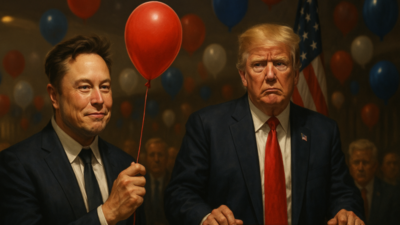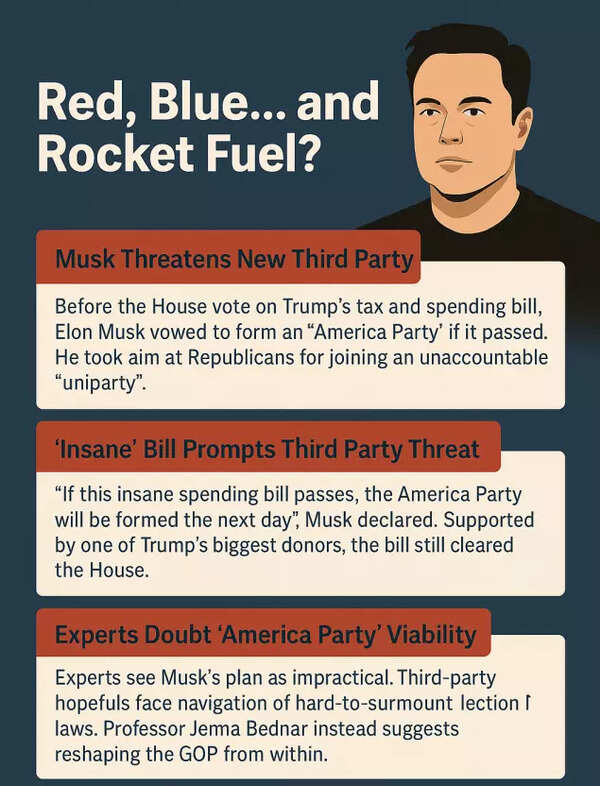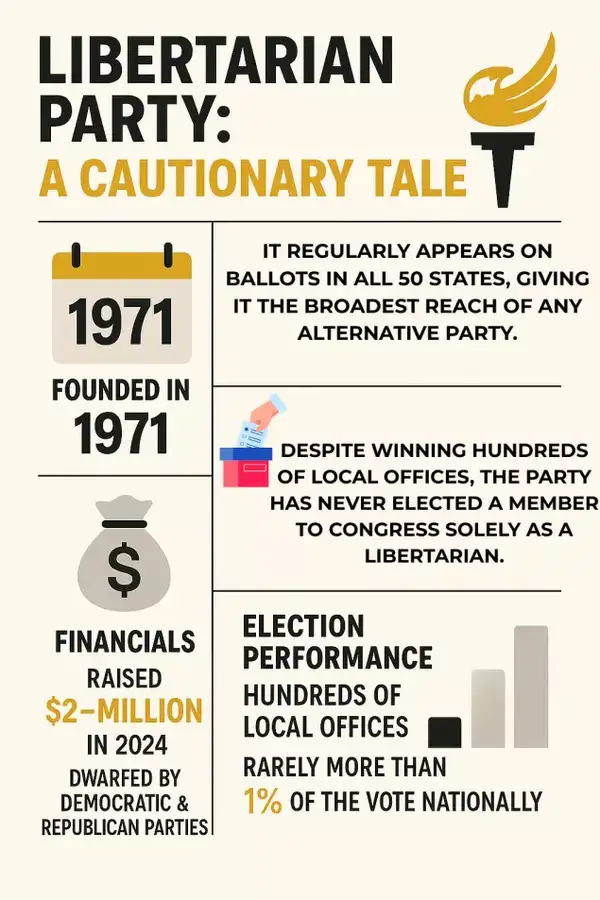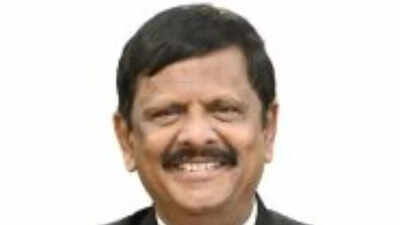‘President Elon’? Musk launches ‘America Party’ after spat with Donald Trump – is it viable?

Elon Musk has done many things few thought possible: Launching rockets, developing self-driving cars, and turning a major social media platform into his personal megaphone. Now, he’s taking on his most ambitious project yet: blowing up America’s entrenched two-party system. On Sunday, the world’s richest man unveiled the launch of the “America Party” a self-funded political force he claims will challenge what he describes as a corrupt and bankrupt “uniparty” dominated by both Democrats and Republicans.The move formalises weeks of growing hostility between Musk and Trump, transforming a simmering feud into full-blown political warfare. “Today, the America Party is formed to give you back your freedom,” Musk declared on X, the social media platform he owns.Long one of Trump’s biggest donors and closest policy allies, Musk now vows to bankroll challengers to Republican incumbents and push forward what he hopes will become the most consequential third-party bid in modern US history. The question now: Is this Musk’s next great disruption or a high-profile experiment doomed by the very system he hopes to upend?
Musk lashes out
Musk’s post was one of several attacks on both parties, but especially on Republicans who, in his view, have broken promises to reduce government spending. “Every member of Congress who campaigned on reducing government spending and then immediately voted for the biggest debt increase in history should hang their head in shame!” he wrote. “And they will lose their primary next year if it is the last thing I do on this Earth.”

Musk further accused Congress of representing a corrupt “Democrat-Republican uniparty,” adding: “Our country needs an alternative… so that the people actually have a VOICE.”But as the Washington Post’s Prompt newsletter noted, many political observers see Musk’s crusade as more performative than strategic. While he once led Trump’s Department of Government Efficiency, Musk showed little real interest in cutting the national debt until the bill directly threatened his business incentives.
Can Musk’s “America Party” succeed? Experts say not likely
Jenna Bednar, a political scientist at the University of Michigan, echoed these concerns in an interview with The TimesofIndia.com: “In the United States’ electoral system, third parties face nearly insurmountable organisational, institutional, and cultural barriers… Mr. Musk likes to build big and has ambitions for a national party. I don’t see it becoming a serious rival to the two parties.”She added, however, that Musk “could be enormously successful if he uses his wealth to support primary challengers… He could significantly reshape the Republican Party from within by freeing centrist Republicans from their fears of Mr. Trump.” Bednar also cautioned that “there is a high likelihood that Mr. Musk’s attention would wane; the earliest primaries are not until March 2026. He may move on to other projects long before then.”
Libertarian Party: Musk’s cautionary tale
As Musk builds the America Party from scratch, many experts point to the Libertarian Party as a cautionary tale. It remains the most consistently successful third party in modern US politics yet its influence remains marginal.Founded in 1971, the Libertarian Party has built robust ballot access, often appearing in all 50 states. It achieved its best-ever presidential performance in 2016, when Gary Johnson won 3.3% of the national vote over 4.4 million ballots. However, that momentum has yet to translate into broader national relevance.

The party has found some success in local elections, winning hundreds of municipal offices and occasionally a state legislative seat. But it has never sent a member to Congress elected purely as a Libertarian. Figures like Justin Amash switched affiliation while in office but did not win re-election under the party banner.In short, even with decades of organising, broad ideological appeal, and consistent ballot access, the Libertarian Party has struggled to gain serious political traction. Musk may have resources far beyond any Libertarian candidate in history, but the same systemic barriers legal, financial, and cultural could confine the America Party to the same fate.
Third-party struggles
CNN highlighted how entrenched the two-party system has become, noting that even well-funded independents like Robert F. Kennedy Jr. or popular outliers like Lisa Murkowski often struggle to survive politically. “You’re roadkill in the middle,” Murkowski told The Assignment podcast.Furthermore, to qualify as a party in California, for instance, a new political group must either register 75,000 voters or gather over 1 million petition signatures. And to be nationally recognised, each state branch must request an advisory opinion from the Federal Election Commission, a time-consuming and expensive process.Despite this, Musk’s immense personal wealth could theoretically change the game. Musk spent $277 million in the 2024 cycle, mostly through America PAC, and could do so again. However, even with endless money, Kappel warned: “The hurdles for creating a new party and getting it on the ballot are extremely high… It’s a multi-year project and will cost hundreds of millions of dollars.”
Parties that rose, ruled — and vanished
Musk’s America Party may seem like a moonshot in today’s entrenched two-party system, but American history is filled with once-powerful parties that vanished — and others that emerged to take their place. In the early days of the republic, the Federalist Party dominated under Alexander Hamilton, only to fade after the War of 1812. It was replaced by the Whigs, who briefly rose to prominence in the mid-19th century before collapsing over divisions on slavery.Out of the Whigs’ ashes came the Republican Party — a fringe movement that, within a few years, swept Abraham Lincoln into the presidency. These historical shifts show that the American party system is not as fixed as it may seem. But the key ingredient for transformation wasn’t just money or media power; it was a moment of crisis, a vacuum in political leadership, and deep national realignment.
America Party’s 2026 plan: Targeted disruption
Musk proposed focusing on just a few vulnerable Senate and House races. “One way to execute on this would be to laser-focus on just 2 or 3 Senate seats and 8 to 10 House districts,” he wrote. “Crack the uniparty system through extremely concentrated force at a precise location on the battlefield.”Still, legal and structural challenges remain enormous. Musk has yet to register the party with the FEC and will need a legal framework to coordinate donations, meet ballot requirements, and recruit candidates.Former DOGE aide James Fishback has even launched a rival super PAC to counter Musk’s influence. Called FSD PAC (Full Support for Donald), it aims to raise $1 million to back Trump-aligned candidates and oppose Musk-backed challengers.For now, Musk’s America Party is more of a declaration than institution. But if his wealth, frustration, and ambition hold firm, it could reshape the GOP or become the most serious third-party movement America has seen in decades.





